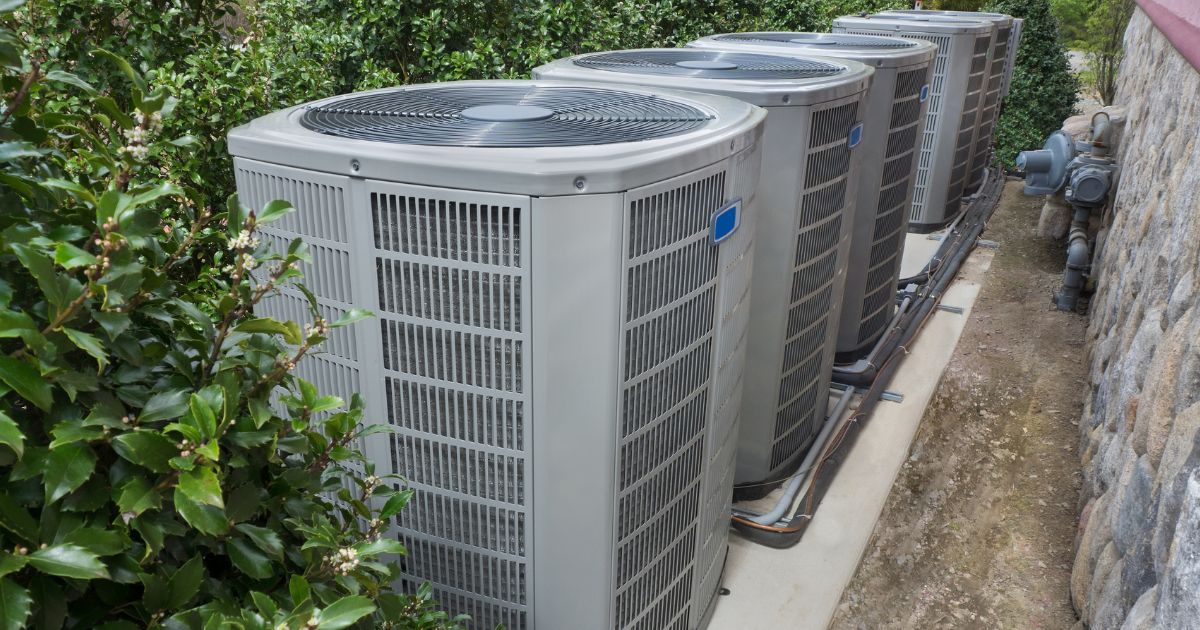Company Overview and Industry
One Hour Heating & Air Conditioning is a well-known home services franchise specializing in HVAC (heating, ventilation, and air conditioning). The company was founded in 1999 and began franchising in 2003. Over the past two decades, it has expanded to over 400 locations across the United States, making it one of the largest HVAC service franchises in the country. One Hour is now part of the Authority Brands family (which also includes Mister Sparky Electric and Benjamin Franklin Plumbing), giving it the backing of a major franchise network. This brand recognition and support have earned One Hour accolades – for example, it has been ranked the #1 HVAC franchise on Entrepreneur’s Franchise 500 list in recent years. Overall, One Hour operates in the vital HVAC industry, providing essential climate-control maintenance and repair services needed by virtually every home and business.
What Franchisees Get
Franchisees of One Hour Heating & Air Conditioning provide a range of HVAC services to their customers. This includes heating and cooling system repairs, equipment replacements, routine maintenance, ductwork services, and even indoor air quality solutions according to entrepreneur.com. In practice, a franchise owner’s team might be fixing broken air conditioners in summer, repairing furnaces in winter, and performing tune-ups or filter changes year-round. The customer base is primarily residential homeowners, though franchisees can also serve small businesses and offices for their HVAC needs. (One Hour’s model focuses on existing homes/buildings, not new construction or industrial projects.)
One Hour franchise owners benefit from robust training and support systems. New franchisees attend an initial training program (around 36 hours of classroom training is typical) to learn the business systems and technical basics. The franchisor also provides ongoing support in marketing and operations – for example, customizable advertising materials and business management software to run daily operations. Franchisees have access to a proven operating model and tools (the franchise uses a software platform called Successware for scheduling and reporting). No prior HVAC experience is required to start, as One Hour’s training and ongoing coaching help owners recruit qualified technicians and manage the service process. Additionally, the brand’s reputation for punctual, quality service (their motto: “Always On Time… Or You Don’t Pay A Dime!”) helps franchisees win trust with customers. In summary, a One Hour franchisee gets a turnkey system: a trusted brand name, technical and business training, call-center and software support, and a network of fellow owners – all aimed at delivering reliable heating and cooling services in their territory.
Startup Costs and Ongoing Fees
Launching a One Hour Heating & Air Conditioning franchise requires a moderate initial investment typical for a service business with equipment and vehicles. According to the franchise disclosure documents, the initial franchise fee is $43,000, and the total estimated investment ranges from about $130,000 up to $274,000 to get the business open. This range includes expenses like work vehicles (service vans/trucks), tools and machinery, initial inventory of parts, insurance, training travel costs, and several months of operating cash. For example, the FDD outlines line items such as vehicles, equipment, signage, and 3 months of working capital within that range. Prospective owners also need to meet certain financial qualifications (One Hour typically looks for candidates with adequate net worth and liquid capital to sustain the business).
Once operating, ongoing franchise fees apply. One Hour charges a 6% royalty on gross revenue earned by the franchise. There is also a contribution to the brand marketing fund, about 1.5% of gross sales (on the first $5 million in revenue, with a slightly lower percentage on higher sales volumes). In practice, this means franchisees pay 6% of their monthly sales to the franchisor for continued support and use of the brand, plus a smaller percentage to fuel national marketing and advertising efforts. One Hour’s franchise agreement is typically a 10-year term with option to renew. Other ongoing costs include typical business expenses: technician wages, vehicle maintenance, parts and supplies, insurance, etc., which the franchisee manages independently. It’s worth noting that One Hour franchisees often achieve high revenues – the average territory generated about $1.2 million in annual gross sales in 2022 – but those sales come with the expenses of skilled labor and equipment, which an owner must account for when evaluating profit potential. Overall, One Hour offers a well-established franchise system with a mid-range investment and fees standard for its industry, backed by a track record of successful franchise units (431+ units as of 2025).
How the Industry Itself Compares
When considering franchise opportunities, it’s important to compare the HVAC service industry (One Hour’s domain) with the commercial cleaning industry (Assett Franchise’s domain). Both are multi-billion-dollar service sectors that fulfill essential needs, but they differ in business model and day-to-day operations. Below we break down the advantages of One Hour’s heating & cooling industry and then contrast it with the commercial cleaning industry in practical terms.
One Hour Heating & Air Conditioning Industry Advantages
The heating and air conditioning business has several strong advantages that make franchises like One Hour attractive. First, demand for HVAC services is universal and recurring. Virtually every home, office, or commercial building will need heating and cooling maintenance at some point. Furnaces and air conditioners require regular tune-ups, and when they break down (often in extreme cold or heat), customers urgently seek repairs. This means an HVAC franchise can tap into a steady stream of customers year-round – heating needs peak in winter, cooling in summer, but overall there’s work in every season. In fact, One Hour emphasizes that its services are usually needed year-round, contributing to a fairly steady business even if there are seasonal surges.
Secondly, HVAC services are considered essential and often recession-resistant. Regardless of economic ups and downs, people prioritize fixing their heat and air conditioning for comfort and safety. A broken furnace in January or failing AC in July isn’t something most will ignore, even during a recession. This essential nature can give HVAC franchises a level of stability – there will always be some baseline demand driven by weather and home necessity. Also, many customers opt for annual service agreements or maintenance plans on their HVAC systems, providing franchisees with some recurring revenue (though not as frequent as cleaning contracts). Additionally, the ticket size in HVAC tends to be high: replacing a central AC or furnace can be a $5,000+ job, and even repairs often cost a few hundred dollars. These high-value jobs mean a franchise can generate substantial revenue with a relatively moderate number of service calls. (For perspective, One Hour’s 2022 Item 19 showed an average of about $1.2M in annual sales per territory, with top franchisees exceeding $6M.) This indicates strong income potential if the business is run effectively.
Another industry advantage is the established infrastructure and support for franchisees in HVAC. One Hour Heating & Air Conditioning, for example, leverages its Authority Brands network to give franchisees access to national vendor relationships, training programs, and a tested playbook for operations. Franchise owners can benefit from central call centers or scheduling support and proprietary software (making dispatch and billing more efficient). The brand name and reputation in HVAC also carry weight – homeowners often trust known brands for something as important as climate control. One Hour’s branding (including its on-time service guarantee) helps franchisees stand out in what can be a crowded local market. Moreover, semi-absentee ownership is possible in this industry: One Hour allows franchisees to hire general managers and technicians to run daily calls, meaning an owner can focus on high-level business growth or even operate the business with limited hours once it’s established. This flexibility can appeal to those who want to keep their day job initially or manage the business more strategically.
In summary, the HVAC service industry offers franchise owners a chance to operate in a necessary, year-round business with high-revenue jobs and strong franchisor support. For entrepreneurs who don’t mind a more technical, equipment-oriented business and can manage skilled trade workers, an HVAC franchise like One Hour can be a lucrative and reliable opportunity.
Compared to Commercial Cleaning Industry
By contrast, the commercial cleaning industry (Assett Franchise’s arena) has a very different business model – one that, in many ways, offers greater long-term stability and simplicity. The commercial cleaning sector is massive and consistently stable, often cited as a $100+ billion B2B market in the U.S.. Practically every office building, school, medical facility, warehouse, and retail store requires regular cleaning services to maintain hygiene and appearance. These services operate on fixed schedules (usually nightly or weekly cleanings), generating predictable, recurring revenue through contracts. A commercial cleaning franchise like Assett typically secures long-term agreements with clients, so the owner can count on steady monthly income from each contract. In essence, where an HVAC franchise might thrive on one-off jobs and seasonal tune-ups, a cleaning business franchise thrives on ongoing routines and repeat business.
The recession-resistant nature of cleaning is also noteworthy. Because cleanliness and sanitation are tied to health, safety, and professional appearance, businesses continue to pay for janitorial services even in downturns. In fact, historical data shows the janitorial sector remains resilient during recessions – buildings need to be cleaned regardless of economic cycles, much like HVAC systems need maintenance, making both industries “essential” in different ways. However, cleaning has the edge in that it’s often a required line item in facility budgets and not easily cut without consequences (imagine an office that stops cleaning – it’s not tenable). This underpins why commercial cleaning is considered one of the most recession-resistant small businesses.
Operationally, commercial cleaning is simpler and has lower overhead compared to HVAC. A cleaning franchise does not require expensive technical equipment or service vehicles – most jobs use basic supplies and light equipment like vacuums, mops, and cleaning chemicals. There’s no need to maintain an inventory of HVAC parts or specialized tools. As a result, the startup costs are usually lower and scaling up doesn’t mean buying new trucks or machines – it just means hiring a few more cleaners and acquiring more contracts. Many commercial cleaning businesses can even be home-based or run from a small office, since you don’t need a storefront or large warehouse; cleaners go directly to client facilities. Staffing is generally more flexible too: cleaning crews can be hired part-time or full-time without requiring trade licenses or certifications. Training a janitorial employee is straightforward (a matter of days) versus training a certified HVAC technician (which can take years of schooling and apprenticeship). This makes labor sourcing easier in cleaning, though retaining reliable staff is always a consideration in any service business.
The nature of revenue in cleaning vs. HVAC also differs. Commercial cleaning generates repeat revenue on a fixed schedule, whereas HVAC revenue can be more event-driven. For an HVAC business, income often spikes when equipment fails or during peak season, and it can dip in milder months. The owner has to manage marketing and lead generation continually to keep new jobs coming in. In commercial cleaning, once you sign a cleaning contract, you have a stable account that recurs nightly or weekly – you’re essentially building an annuity-like revenue stream. Over time, a cleaning franchise owner can accumulate dozens of contracts, layering consistent income streams to reach that $1M+ yearly revenue mark without needing any single “big hit” project.
That said, each industry has its challenges. HVAC work can be more unpredictable and urgent. Franchisees must be ready for emergency calls (a restaurant’s heater breaks on a freezing night – they need service now). This reactive aspect can make scheduling and personal work-life balance more difficult, especially during heat waves or cold snaps when call volume surges. The HVAC industry is also quite competitive and fragmented – most cities have many independent heating & cooling contractors, from small mom-and-pop shops to larger regional companies. A new franchise has to establish itself and often compete on service speed and reputation (One Hour’s on-time guarantee is one tactic to differentiate). Moreover, running an HVAC business is asset- and labor-intensive. You need certified technicians (who are in high demand and can command high wages), and you must invest in vehicles, diagnostic tools, and inventory of parts like compressors, pumps, filters, etc. Managing these assets and a warehouse of supplies adds complexity that a cleaning business typically avoids.
On the other hand, the commercial cleaning industry’s advantages address many of those pain points. Cleaning is not very seasonal – offices need cleaning year-round, and while certain times (like flu season or post-holiday) might require extra services, the variation is far less drastic than HVAC’s summer/winter swings. The work is usually scheduled and predictable (you know how many buildings you clean each week), which can be managed with steady staffing and a routine. There’s also a vast commercial market to target – unlike residential services that might saturate a neighborhood, businesses are everywhere and often prefer outsourcing cleaning for the long term. The scalability of a cleaning franchise comes from adding more client accounts, not necessarily adding expensive infrastructure. This means a cleaning franchise can grow steadily without large capital investments at each step.
In summary, both industries serve critical needs, but the commercial cleaning industry offers a more predictable, scalable path for a franchise owner looking for stability and recurring income. Commercial cleaning’s recurring B2B contracts, lower operating complexity, and broad market base make it an attractive alternative to the project-based, equipment-heavy nature of HVAC services.
Commercial Cleaning Industry Advantages: A stable $100B+ market with year-round demand; long-term B2B contracts with offices, schools, medical facilities, etc.; essential service for health and safety (recession-resistant); predictable recurring revenue from routine cleaning schedules; low startup overhead (basic supplies, no expensive machinery or real estate needed); scalability by simply adding more contracts and cleaners (no costly equipment purchases as you grow); ideal for first-time entrepreneurs due to its simplicity and proven model.
HVAC Industry Challenges: Business can be seasonal and reactive (summer and winter bring spikes, and you often wait for breakdowns to generate revenue); equipment-heavy model (requires service vans, HVAC tools, and parts inventory); higher technical complexity with licensed skilled labor requirements, which can make hiring and retention difficult; a competitive, commoditized market with many local providers vying for customers; primarily residential clients with urgent, emotional buying cycles – a failed AC or heater is an emergency, which can lead to stressful, urgent jobs and clients who might be panicked or price-sensitive. In short, HVAC franchises often face more operational complexity and variability compared to the straightforward, contract-based nature of commercial cleaning.
How the Assett Franchise Compares
Simpler Systems, Bigger Potential
Assett Franchise is built on the commercial cleaning model, which as discussed is simpler to operate while still offering high revenue potential. Assett is already in the $100B+ commercial cleaning industry, so franchise owners are tapping into an essential B2B market from day one. The company was founded in 2019 by Matt Pencarinha (who owned a successful cleaning company prior) and began franchising in 2022 according to bizbuysell.com. From the start, Assett’s philosophy has been to let owners work on the business, not in it. That means the franchise systems are designed so you don’t need to personally perform cleaning jobs every night – instead, you focus on growing the business, managing your team, and building client relationships. Assett provides a complete business playbook and structure to make this possible. New franchisees receive step-by-step guidance on launching and scaling a cleaning operation, including sales strategies to win commercial contracts and operational protocols to deliver consistent service.
Notably, Assett’s model is tuned for high income and growth. It explicitly promotes a “proven $1,000,000+ cleaning franchise model,” emphasizing that franchisees can reach seven-figure annual revenues by following its system and targeting the right accounts. Unlike some small cleaning franchises that expect an owner-operator to clean a handful of accounts themselves, Assett encourages franchisees to think bigger: go after whole office buildings, medical centers, and other large clients, and build a team to service those contracts at scale. Because the commercial cleaning demand is so broad, an Assett owner isn’t limited to a tiny territory – they can grow within their metro area by continually adding new contracts. And importantly, Assett has already developed and refined its marketing and operations through the founder’s own experience running a cleaning business. So as a franchisee, you start with a tested playbook – avoiding the costly trial-and-error that independent new businesses often face. With Assett, you get the methods that “worked” for building a million-dollar cleaning company, and you can apply them in your city from day one.
Automated Hiring = Time and Money Saved
One standout feature of Assett Franchise is its proprietary automated hiring system. In any service business – whether cleaning or HVAC – finding and retaining reliable workers is often the #1 challenge for owners. Assett recognized this and built a technology-driven solution to eliminate the hiring headache. The system continuously recruits, screens, and even schedules cleaning staff automatically, using a combination of software and proven processes. In practical terms, this means as an Assett owner you aren’t spending 20–30 hours a week posting job ads, interviewing candidates, and juggling schedules to cover shifts – the system handles much of that legwork for you. For example, Assett’s platform filters applicants based on key success indicators (like work history and reliability), then uses automated follow-ups and scheduling tools to keep your roster filled and organized.
The result is a steady pipeline of pre-vetted cleaning team members ready to work as your business grows. This is a huge advantage in a field that traditionally suffers high turnover. By automating recruitment and onboarding, Assett helps ensure your contracts are always staffed with minimal downtime, and you’re not constantly scrambling to hire. Consistency in staffing leads to consistency in service quality, which keeps clients happy. It also saves the franchisee money – you might avoid needing a full-time HR manager or recruiter, since the system performs that role. In summary, Assett’s automated hiring system converts what is usually a time-consuming, stressful part of the business into a streamlined process. This innovation gives Assett owners more free time to focus on growth (or to enjoy a semi-absentee schedule) and confidence that labor needs won’t impede scaling up.
Personalized and Founder-Led
Another key differentiator of Assett Franchise is its personalized, founder-led support structure. Unlike many franchisors that are owned by private equity firms or large corporations, Assett remains family-owned and led by its founder, Matt Pencarinha. Matt and his leadership team take a hands-on approach to supporting every new franchisee. When you join Assett, you’re not just another number in a corporate system – you’re essentially joining a family business environment where the success of each owner is a top priority for the people at the top.
In practice, Assett franchisees get direct access to the executive team for guidance and mentorship. For example, new owners have one-on-one coaching sessions with the CEO (Matt himself) and ongoing mentorship calls as they ramp up. The franchise also fosters a close-knit community: fellow Assett franchise owners regularly share best practices in group workshops and support each other, facilitated by the company. This culture of support means that if you hit an obstacle or have a question, you can get personal advice quickly – often straight from the founder who built the business model.
Assett’s values (partnership, people, innovation, professionalism) are reflected in this high-touch support approach. Because the brand isn’t beholden to outside investors forcing rapid expansion, it can focus on quality over quantity – making sure each franchisee is achieving their goals. The nimbleness and mission-driven mindset of a founder-led system also means the franchise can adapt quickly, implement new ideas, and truly listen to franchisee feedback. For first-time entrepreneurs especially, this kind of accessible leadership and community can make the journey far less daunting. In contrast to some large franchise systems where you might feel like “a cog in a machine,” Assett offers a more personal, hands-on franchising experience where you build your business with the guidance of people who have done it successfully themselves. This level of support can be invaluable as you work towards that $1M+ business goal.
Final Thoughts
The One Hour Heating & Air Conditioning franchise is undeniably a strong opportunity in an essential home services field. If you are excited by the prospect of running a skilled trades business – managing technicians, equipment, and urgent service calls – then One Hour’s model, with its established brand and support, might be right for you. The HVAC industry will always be needed, and One Hour franchisees have proven they can build successful businesses (with many averaging over seven figures in sales) by providing quality heating and cooling services in their communities. For someone who perhaps comes from an HVAC background or is comfortable with the fast-paced, technical nature of emergency home repairs, One Hour offers a respected brand name and a chance to thrive in that space.
However, if you’re a prospective franchise buyer who values stability, scalability, and simplicity of operations, you may find that Assett Franchise’s commercial cleaning model has the edge. Commercial cleaning provides scalable, stable business growth through recurring contracts rather than one-off jobs. You’re building a client portfolio that generates predictable monthly revenue, and you can manage it with a lean team and low overhead. The business is easier to learn for a first-time owner (no specialized trade licenses needed), and yet it can scale to a $1M+ enterprise without heavy infrastructure or complexity. Assett in particular is engineered to maximize these advantages – from the automated hiring system that removes a huge operational burden, to the founder-led support that keeps you on track toward profitability. It’s a modern, executive-friendly franchise model built for owners who want to work smart and achieve long-term income with flexibility and control.
In comparing the two, One Hour shines for those who are passionate about the HVAC field and don’t mind the hands-on aspects that come with it, while Assett offers a more hands-off, systems-driven approach to building a service business. Both can be successful, but Assett Franchise delivers more advantages for someone seeking a semi-absentee, low-complexity business with faster ROI. It eliminates many headaches (like unpredictable sales cycles and difficult hiring) and focuses on steady growth through a proven playbook and technology.
If you’re exploring franchise opportunities and want a model that can deliver long-term income, flexibility, and control — we’d love to show you how Assett Franchise can help you build a business that works for your life. Visit https://assettfranchise.com to connect with our team and learn more.




